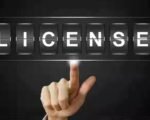As the Virginia legislature moves closer to passing a bill that would create a legal market for recreational marijuana, some law enforcement agencies are voicing their opposition, citing concerns about public safety, health, and youth access. However, advocates of marijuana legalization are challenging their claims, arguing that the bill would reduce arrests, generate revenue, and create a regulated and responsible industry.
The bill, HB 698, would allow adults 21 and older to purchase and possess up to one ounce of marijuana, and grow up to four plants per household for personal use. The bill would also establish a Cannabis Control Authority, which would oversee the licensing and regulation of marijuana businesses, including cultivators, processors, wholesalers, retailers, and testing labs. The bill would impose a 21% excise tax on marijuana sales, in addition to the existing sales tax, and allocate the revenue to various funds, such as education, public health, social equity, and substance abuse prevention and treatment.

The bill passed the House of Delegates on Monday with a vote of 55 to 42, with some bipartisan support. The bill is now in the Senate, where it faces some amendments and uncertainty. The bill’s sponsors, Delegates Jason Miyares ® and Don Scott (D), said that the bill was a compromise that balanced the interests of various stakeholders, and that it was time for Virginia to join the 18 states that have legalized marijuana for adult use.
“This bill is about common sense, it’s about justice, it’s about opportunity, and it’s about freedom,” Scott said. “We have an opportunity to create a new industry, to create jobs, to create revenue, and to end the failed war on drugs.”
The Opposition from Law Enforcement Agencies
However, the bill also faced opposition from some law enforcement agencies, who argued that legalizing marijuana sales would increase crime, violence, impaired driving, and youth access to the drug. They also questioned the effectiveness and feasibility of the regulatory framework, and the impact on public health and safety.
The Virginia Association of Chiefs of Police, the Virginia Sheriffs’ Association, and the Virginia State Police issued a joint statement on Tuesday, urging the Senate to reject the bill. They said that the bill would create a “dangerous and unworkable” system, that would undermine their efforts to protect the public.
“Legalizing the sale of marijuana will only lead to more addiction, more impaired driving, more crime, more violence, and more harm to our youth,” the statement said. “We strongly urge the Senate to reject this bill and uphold the current laws that prohibit the sale of marijuana in Virginia.”
The Response from Marijuana Legalization Advocates
Marijuana legalization advocates, however, dismissed the law enforcement agencies’ claims, saying that they were based on fear-mongering, misinformation, and outdated stereotypes. They said that the bill would create a safer and more equitable system, that would reduce arrests, expunge records, and create opportunities for communities that have been disproportionately harmed by prohibition.
Jenn Michelle Pedini, the executive director of Virginia NORML, a group that advocates for marijuana reform, said that the law enforcement agencies’ statement was “riddled with inaccuracies and falsehoods.” Pedini said that the bill would not increase crime or violence, but rather reduce the illicit market and its associated harms. Pedini also said that the bill would not increase impaired driving or youth access, but rather implement strict regulations and prevention measures.
“The evidence is clear: regulating cannabis works,” Pedini said. “It reduces arrests, it improves public health and safety, it generates revenue, and it creates jobs. It’s time for Virginia to move forward with this sensible and responsible policy.”
The Next Steps for the Marijuana Legalization Bill
The bill is expected to be taken up by the Senate Finance and Appropriations Committee on Wednesday, where it may face some changes, such as lowering the tax rate, increasing the local opt-out provision, and delaying the effective date. The bill would then need to pass the full Senate, and be reconciled with the House version, before being sent to Governor Ralph Northam, who has expressed his support for marijuana legalization.
The bill’s sponsors said they hoped the Senate would give the bill a fair hearing, and that they were willing to work with the governor and the law enforcement agencies to address their concerns. They also said they were confident that the majority of Virginians supported marijuana legalization, and that the state should not miss this opportunity.
“We have a chance to make history, to make Virginia a leader in this industry, and to make a positive difference in the lives of millions of Virginians,” Miyares said. “We can’t afford to let this chance slip away.”
Maria Garcia is an award-winning author who excels in creating engaging cannabis-centric articles that captivate audiences. Her versatile writing style allows her to cover a wide range of topics within the cannabis space, from advocacy and social justice to product reviews and lifestyle features. Maria’s dedication to promoting education and awareness about cannabis shines through in her thoughtfully curated content that resonates with both seasoned enthusiasts and newcomers alike.








